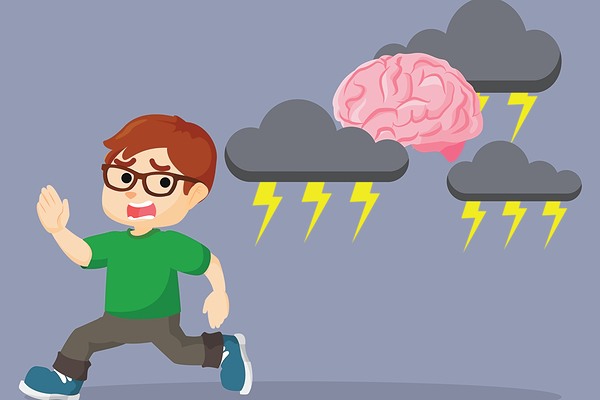We’ve all been stressed out at some point or the other – some of us have come to live in a constant stressed-out state.
Anything that poses a challenge or a threat to our well-being can cause stress. Some things that cause stress are good for you in the sense that they get you to take action – think deadlines. In fact, without stress, our lives would be probably be quite boring. However, when levels of stress get so high that they begin to undermine mental and physical health, you need to take steps to cut it out of your life.
Stress And Your Brain
What does stress have to do with the brain?
Well, your brain is constantly looking out for you. When it perceives something as dangerous, it determines an appropriate behavioral response (anxiety, for example). And when your brain thinks something is dangerous, it’s under a lot of stress.
It’s important to note that ‘stress’ doesn’t just refer to your typical definition of having way too many things to do. Stress can result in, or even be caused by, anything from sleeping badly or being overweight to abuse or neglect.
A Two-Way Street
Your brain, through your nervous system, controls your body’s processes. In turn, the hormones responsible for stress affect the brain and nervous system. They can alter the structure of neurons and their connections, influence behavior, and even change hormonal processes.
Developing brains are even more sensitive to stress. Besides stressful life events, ordinary, day-to-day experiences that go a little bit awry can affect the brain. For example, say a child isn’t doing well in school, or is getting bullied. These kind of situations can cause a lot of stress to a young brain.
It’s All A Grey Area
It’s time to get a little more technical.
Our brain consists of two types of matter—white and grey.
Think of white matter as the long-distance wiring of the brain. It connects the different parts of the brain so that they can share information.
Grey matter, on the other hand, ‘does the math’. Using the information that’s shared by the white matter connections, it takes care of any calculations that need to be done.
When researchers observed white and grey matter in developing brains of those who were under stress, they found that higher stress results in lower volumes of white and grey matter.
A Negative Relationship
Unfortunately, stress has a negative effect on the developing brain. Don’t worry, though – in a normal, healthy brain, the effects are usually reversible.
Stress management can be tough. Sending your child to a good playschool is one way to help them reduce the impact of stress on their lives. Since they’ll be interacting with kids their own age, they’re likely to play and laugh, which will combat any stress they may be facing.




